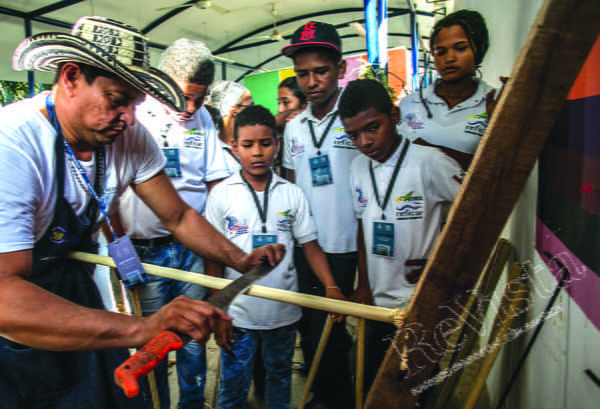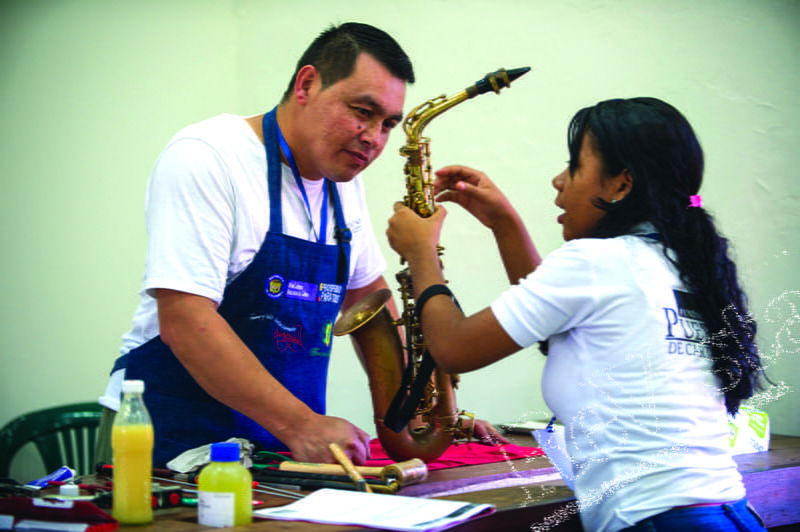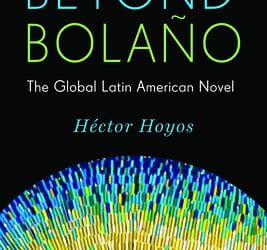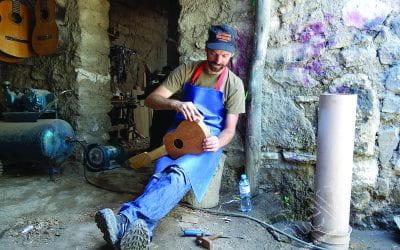The Opportunity to Live a Life in Music
The Cartagena International Music Festival
In the cobbled streets of Cartagena, where the sea meets with a land vibrant in history and beauty, music—in particular classical music—has become a protagonist during nine days of January since 2007. Musicians of all ages and backgrounds stroll around the city day and night, reminding visitors and locals that something magical is taking place. The Cartagena International Music Festival combines artistic excellence and education in benefit of a social cause: promoting the arts as a channel for social integration.
The Festival supports the development of local musicians, increasing the openings for a life in the arts. It also mobilizes communities from within and outside Colombia around the festival. Thus, we generate an ideal space for human interaction with the aid of a universal language: music. The event promotes social integration along with fundamental values for civic coexistence such as solidarity and respect, assisted by the arts that open up our minds and help us become better human beings.
The existence of a festival or the mere access to music does not guarantee that the conditions for a better society will emerge and solidify. However, fostering this form of expression in people’s lives does increase the possibilities for this to happen. Through the Cartagena International Music Festival and related programs, Fundación Salvi (Colombia) focuses on mobilizing resources, organizations and people to create the opportunities for the expansion of music, seeking ways for society to find common grounds to coexist in peace.
Young adults from 18 to 25, as well as adolescents from age 12 up, have been the focus of our didactic work. Fundación Salvi’s leading educational program is its Master Classes, designed to bring international artists of excellent artistic and human qualities together with talented local musicians and professors who seek more opportunities to progress. Each Master Class is characterized by its academic rigor combined with friendly dialogue between professors and students. As a previous participant put it:
“I take with me [the good fortune of] having had the opportunity to be in contact with great interpreters of universal music and of meeting colleagues from other universities with whom we have identified ways of improving the quality of academic music in our institutions”—Robinson Giraldo Villegas, trombone teacher and beneficiary of a 2015 Salvi grant.
Robinson’s experience as a student, despite being himself a teacher, reflects feelings that other participants have shared with us about their academic and professional experiences. In its ten years of existence, more than 3,500 students have benefited from this program, many of whom have received Fundación Salvi grants. Beyond the classrooms, young adults experience other educational settings such as concerts, conferences and exhibitions. The exposure to live performances, for instance, teaches them much about the connection between a performer and his audience and the joy that a spirited musical interpretation can bring to the people that gather to listen.
On the technical front, students improve their musical ear, posture and personal presentation, among other abilities, while on the personal side they engage with peers, colleagues and people from different walks of life. This gives them insight into various social contexts, helping to dispel stereotypes and to find more common ground than differences—all essential to reinforcing civic values. As Fundación Salvi’s academic program director Javier Duque points out, “The Festival complements the regular cycle of formation offered by our teaching institutions, in an environment that is ideal for stimulating learning.”
In this context, social integration and even valuable friendships result from the encounter between national and foreign musicians. Leading international artists who have participated in our program include the violinist and conductor Scott Yoo, Italian baritone Roberto De Candia, and, in 2016, the great Russian violinist, Maxim Vengerov. For the professors too it is an opportunity to teach young musicians, with different backgrounds than theirs, who bring their own visions of the world into the way they interpret music.
THE INSTRUMENT HEALERS
This artistic and educational experience is complemented by the silent activity of instrument building and repairing known as lutería, a historical craft that is essential to music and its evolution. All year long, separate from the festival but also in preparation for it, Fundación Salvi, in alliance with the Colombian Ministry of Culture and with the support of private benefactors, carries out a lutería program which, in addition to building and repairing services, provides training and education with a focus on young musicians and artisans.
In its six years of existence, this program has reached four of the country’s major cities and their surrounding suburbs; it has provided 38 courses of formation to Colombian artisans, served 45 municipal bands and repaired 900 instruments. During the festival itself, a total of 136 workshops have been held, benefiting 2,200 participants. Beyond the numbers themselves, what is most important is the overall socio-cultural impact.
Over the past two decades numerous musical programs have sprung up in different regions of the country, not only to expand the opportunities for the young to live a life in the arts, but also to give young people some tools to face the various threats present in society. Examples of such programs are the Network of Music Schools of Medellín, the youth groups of the Bogotá Philharmonic Orchestra, the Cartagena Symphony Youth Orchestra, and the various suburban bands that have risen with the support of non-profit organizations such as Fundación Batuta, nationwide, and Fundación Música por Colombia, in the Caribbean region.
In this context, the work of lutiers, that is, instrument makers and repairers, is vital for existing bands and orchestras. Thus, the Lutería and Wind Instrument Centers in Colombia, which began as an initiative of the Ministry of Culture, play a fundamental part in strengthening this craft and its impact on musical development. The centers have grown and expanded their reach thanks to the initial financial and philanthropic support of Fanny and Luis Carlos Sarmiento. In 2015, another local non-profit, Fundación Mario Santo Domingo, took up the flag and became the Centers’ new benefactor, helping us initiate a new entry-level training program, under the guidance of two Italian and one Colombian lutier.
MAKING AN IMPACT
The work of Fundación Salvi is an example of the impact of non-profits on society in various fields, in this case, the arts. By bringing the public and private sectors together, non-profits help consolidate projects that in time become mature programs with a long-lasting impact. To be more effective, such impact must be pursued as well through unity among cultural leaders and agents. This is why, in addition to its musical focus, Fundación Salvi has made Colombian plastic artists a key part of the festival, by inviting fine artists to help create the images that will reflect the spirit and identity behind each year’s program. With their participation, the festival exalts the connection between the arts and their contribution to society.
As we continue to follow the wise reflections of the thinkers, activists and leaders who have upheld the importance of the arts in promoting progress and well-being, it is insightful to refer to the words of Italian novelist Umberto Eco. In a 2015 column written for Italian newspaper L’Espresso and published in one of Colombia’s leading newspapers, El Espectador, he said: “in a world made up of so many diverse cultures living in constant interaction, our cultural resources are essential to our mutual understanding and peaceful coexistence.” This global idea is a guiding principle in the work of Fundación Salvi and its focus on youth and education. Thus, the best way to honor ten years of artistic and educational work in Colombia is to roll up our sleeves and continue with more wholehearted, hands-on work, taking first the opportunity that these pages give us to thank all of those who have been a part of this journey.
Winter 2016, Volume XV, Number 2
Julia Salvi has dedicated her life to bringing music and the arts to new audiences throughout the world. As president of the Victor Salvi Foundation, Salvi promotes music education and philanthropic activities in connection to the harp. In Colombia, the Foundation’s most ambitious project is the Cartagena International Music Festival, now in its 10th season. To learn more about Fundación Salvi’s artistic, educational and social programs, visit www.fundacionsalvi.com and www.cartagenamusicfestival.com.
Related Articles
Beyond Bolaño: The Global Latin American Novel
I often wonder what life would have held for the late Chilean writer Roberto Bolaño if he had not passed away due to liver complications more than a decade ago. This year he would have…
Notes on Mexican Rock
English + Español
Since the 1960s, there’s been a booming underground rock scene in Mexico. It defines itself as countercultural, but not in absolute opposition to the mainstream—although sometimes it…
Nature’s Sonorous Politics
English + Español
There’s no indigenous political movement in Andean Peru. This, at least, has been the consensus view of scholars since the 1990s, when protests organized by indigenous parties shook the…







